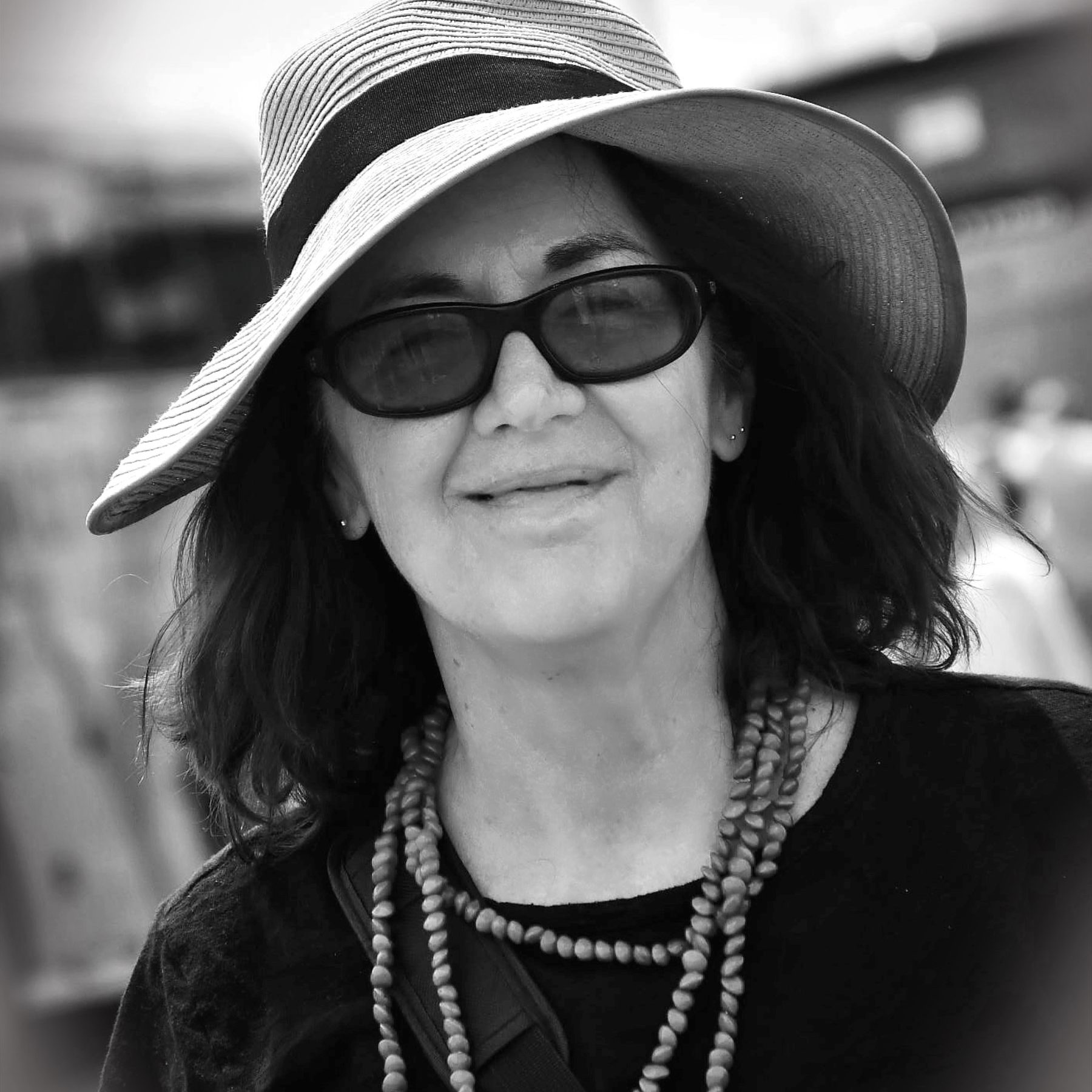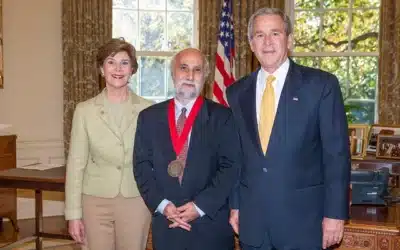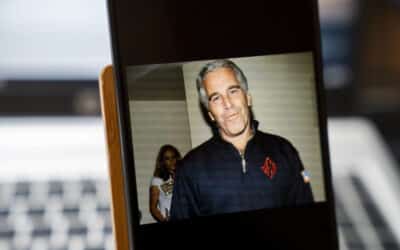The question of killing versus letting die has long been a source of puzzlement to me, particularly as it arises in rallies for so-called “humanitarian” wars abroad. Wealthy nations regularly “allow” people to die all over the world—of disease and starvation, as a result of natural disasters, etc.—so how, I have often wondered, does the professed desire to improve the lot of nonnationals serve to rationalize the dropping of massively destructive bombs upon their homelands? Assuming the most charitable of all possible scenarios (as unrealistic as that may be), even if leaders have the best of intentions, some of the innocent people living in places being bombed will die as a direct result of the military intervention, not the danger allegedly necessitating the use of deadly force abroad. Such deaths are written off as “collateral damage” and the policymakers thereby exonerated in the minds of nearly all of the people who paid for the bombing campaigns.
The case of COVID-19 has begun to raise the question of killing versus letting die, for some of the persons allegedly being protected by the government are being or will be killed not by the disease but by policies enacted to combat the disease. Notwithstanding the stentorian outcry of government interventionists thoroughly convinced of the necessity of lockdowns, closed borders, universal vaccination and face masks, the situation is not at all black-and-white. Indeed, it is quite complex. Everything turns on the contentious concept of “preventable deaths.”
The number one killer in the world, according to the World Health Organization (WHO) is heart disease. No one chooses to die of a heart attack, but is heart disease a case of sometimes preventable death? Obesity is a major contributing factor to heart disease, so one might not unreasonably suppose that if people were permitted to eat only lean proteins, vegetables and fruits, along with whole grains, if they were prevented from consuming fatty foods and highly processed sugar-laden snacks with no nutritive content (beyond calories), then the incidence of death by heart disease would diminish. This could be accomplished most straightforwardly by outlawing the offending foods and imposing government-enforced portion control. No state has to date prohibited or limited the production and consumption of fried foods, ice cream, and doughnuts. Which is not, however, to say that no one has ever tried something along those lines. When former New York City Mayor Michael Bloomberg attempted to outlaw large volume sodas (defined by his administration as exceeding 16 ounces), the law was struck down as unconstitutional. In free societies, it is up to individuals, not executives, to decide what and how much to eat and whether the risk of dying of complications arising from obesity—not only heart disease but also diabetes and other problems—is worth the freedom to choose what to consume.
One meme circulating around the internet shows a severely obese patient in a wheelchair wearing a mask and lashing out at a young, thin person for not wearing a mask. The meme is intended as a not-so-gentle reproach of those who created the negative health conditions which make them personally vulnerable to COVID-19. The insinuation is that severe lockdown and quarantine measures are problematic in a free society in part because some of the people vulnerable to COVID-19 have health-risk factors to which they themselves contributed. Obviously no one should hold octogenarians and nonagenarians “morally responsible” for the age-induced fragility which makes them more likely to succumb to respiratory infections than are younger, hardier persons. But surely there are also some people who suffer from obesity, diabetes, and other risk factors for which they, too, are not fully responsible, given their backgrounds and, in some cases, genetic predispositions. Bad choices are bad choices, but when they are made in part because of how one was raised, say, by parents who made similarly bad choices (and going back perhaps generations…), then there is some cause for restraint in judgment.
On the flip side, some people should not wear masks; not only young children but also persons with asthmatic and other respiratory conditions. While in the Dublin airport, where I had to fly in order to get to Wales (absurdly enough—because the Austrian government had decreed the United Kingdom a red zone), I noticed placards around the bathrooms pronouncing that “Not all disabilities are visible.” The signs were most likely intended to prevent anyone from upbraiding persons using handicapped bathroom facilities who by all appearances are perfectly normal. But it applies now, too, to people who do not wear masks because of their pre-existing health conditions, to which only they and their doctors are privy. Angry mask-wearers who shout shoppers out of stores for not covering their faces simply assume that they are not doing so because they are selfish or stupid (or evil or ignorant), when in at least some cases those people should not be wearing masks because doing so would be more dangerous to them than is COVID-19.
No matter what people do, death by disease cannot be fully eradicated, but other categories of death would seem to be preventable. Take the obvious example of traffic accidents, which has been discussed quite a bit on social media in recent months. If there were no cars, then there would be no car accidents and, therefore, no fatal car accidents. Make driving illegal, and road traffic injuries, which account for more than a million deaths each year worldwide, would come to a screeching halt. Despite knowing the risks involved, people choose to continue to drive vehicles. Despite the evident perils of motorcycles, which afford no protection in collisions with cars and trucks, people continue to choose to ride them. In some places, seat belts are required by law and motorcyclists must wear helmets (on pain of punishment for refusal to comply). Yet there are people who ignore those laws, unconcerned as they are about the increased risk of death which they will thereby face, and knowing that they will likely be fined if they are caught. Those are the rogues, of course, but even some of the people who do wear seat belts and helmets will be killed in traffic accidents, not to mention the many pedestrians who endanger themselves every time they cross a street. These activities are inherently dangerous to greater or lesser extents, depending upon the place and population density, but rather than outlaw all personal vehicles everywhere, governments permit individuals to assume the risk involved in activities which may tragically end in their deaths.
New Zealand has been heralded by some as a “success story” in the global battle against COVID-19, for the country imposed a complete lockdown of residents and slammed its borders shut with the result that hardly anyone in the country has succumbed to the disease—as of August 19, 2020, the grand total of deaths ascribed to COVID-19 is twenty-two. This makes New Zealand an interesting case to consider in thinking about the analogy to fatal traffic accidents. I say this because, in recent years, debate has raged over fatal auto accidents in New Zealand caused by foreign drivers. Like COVID-19, such cases tend to command a great deal of media air time, contributing to the perception of grave danger to the people of New Zealand. In 2016, there were twenty-six fatal accidents in which foreign drivers appear to have been at fault, and by 2019 the total number of traffic fatalities approached 400. At least some of those deaths were caused by foreign drivers, even if the perceived danger is higher than the reality.
The government of New Zealand might have prevented at least some of the fatal accidents by placing a moratorium on nonnational drivers, preventing them from renting cars and exacting severe penalties upon those who borrow cars from their friends and those residents who furnish cars to visitors. But this has never happened. Before COVID-19 (which we may in the future refer to as “B.C.”), despite knowing that foreign drivers from places where traffic flows down the right-hand side of the street do occasionally drift over the line on the sometimes steep and windy roads of New Zealand, thereby directly causing head-on collisions culminating in preventable deaths, the government of that nation has, at least up until now, permitted foreigners to rent vehicles and drive, even while knowing that some Kiwis (New Zealand nationals) will die as a result.
Now, with the sudden appearance of COVID-19, most foreigners are no longer allowed to drive in New Zealand for the simple reason that they are no longer permitted to travel to New Zealand. There were no doubt visitors around when the borders closed, and some may have decided to hunker down and wait for the virus to go away, but the moratorium on new tourists means a sudden and significant reduction of foreigners renting cars and killing Kiwis in New Zealand. Win-win! Well, except for the thousands of poor souls who are now out of work because twenty-two people in New Zealand died of a virus. The thinking among the powers that be, of course, is that if not for the severe lockdowns and restriction of liberties, many more people would have died there by now. Unfortunately, despite the refusal of Sweden to lockdown, we do not have as a test case any place where elderly care facilities were competently protected while the rest of the populace was allowed to roam free. Note, however, that Sweden’s per capita COVID-19 death rate is still lower than that of some countries which did impose months of severe lockdowns.
After the recent discovery of an outbreak of a few new cases (not deaths, mind you, but cases), the New Zealand government extended its lockdown of Auckland again and went one step further down a slippery slope, adopting as a national policy forcibly to place persons who test positive for COVID-19, along with their families, in quarantine camps. National elections have been postponed for a month as well. Authoritarian habits die hard, and one might surmise that once bureaucrats begin crunching the numbers of actual deaths caused in New Zealand by foreigners, they will eventually conclude that if ever they are permitted to return there for vacations, they should not be permitted to drive. In reality, that would and could happen there—and, frankly, everywhere—if and only if all of the new COVID-19 czars had some sort of consistent principles and worldview, which clearly they do not.
For example, while in Austria for more than half of 2020, I was surprised to find that smokers were permitted to puff away in public places, even though it was impossible to do so while complying with the Mund-Nasen-Schutz (face mask) requirement imposed in response to the arrival of COVID-19. Apparently, then, it is fine with the Austrian government for people today to induce in themselves lung cancer in the years to come, while endangering other residents with both second-hand smoke and COVID-19 simultaneously, but healthy nonsmokers not at significant risk of death from the virus are required by law to don face masks. If the risk aversion demonstrated by government bureaucrats in the face of COVID-19 were applied consistently, then cigarettes and personal automobiles would need to be altogether banned, in order to save people from themselves.
At first glance, smoking might seem to be a more straightforward case than obesity, for no one needs to smoke to survive, while all people must eat. Many human beings succumb to death by lung disease each year, usually as a result of having smoked. The dangers of smoking have been well-documented, and this information is now clearly printed on every pack of cigarettes, along with accompanying photos frightening enough to be screen shots from a horror film. And yet, some people continue to choose to smoke, and many continue to die each year of lung cancer and emphysema induced or exacerbated by smoking. Who is ultimately responsible when citizens die of such preventable deaths? Is it the manufacturers and distributors of cigarettes? Is it the government? Is it the voters who elect the government? Is it those who stand idly by watching others act in ways which endanger their own and in some cases other people’s health? Or are not individuals themselves ultimately responsible for what they do and thereby become?
The truth is that we never really know how and why people became the way that they became, nor why they do what they do. This is equally true for those who choose to smoke, to overeat, to ride motorcycles without helmets, and to drive while intoxicated or on steep mountain roads overhanging cliffs even when the traffic rules are the opposite of those to which they are accustomed. Given the many complex factors involved in our choices, each one of which contributes to who we finally become, the default position is generally regarded as one of personal responsibility, at least in Western liberal societies, where people are free to drink themselves to destruction or to gamble their lives away in other ways, whether literally or figuratively.
Contradictions abound in the Animal Farm-esque world of COVID-19 because different government officials the world over, and within large countries such as the United States, have very different views on what is and is not reasonable to ask of citizens. Quarantine, border restrictions and testing requirements change on a daily basis, and it is difficult to resist the suspicion that much of what is going on since the height of the crisis, in the spring of 2020, is purely the result of opportunistic politicians’ attempts to do something, do anything, so that they can take credit when the virus finally disappears.
In the current terror-tinged global pandemic milieu, where self-proclaimed “experts” are a dime a dozen, I continue to puzzle over why people are not simply being permitted to act on their own beliefs. Is not that the very basis of conscience? If anyone is truly terrified of being in the presence of unmasked persons, I would heartily exhort them to stay at home and do all of their shopping online. Just as in the case of drunk drivers and motorcyclists with no helmets, there will always be people who do not do as they are told—or as you believe that they should. If you decide to interact with those people (for example, by driving), that is a choice which you make. To those who would protest that, in the case of COVID-19, many people are ignorant of the relevant scientific literature, or “The ScienceTM,” I would counter that the very same argument would lead to the conclusion that representative democracy should be abolished. Certainly the manifest ignorance of both voters and elected officials in interpreting statistical data has become undeniable in recent months, with apparently intelligent people reading “death rates” of critically ill persons already in hospital intensive care units as applicable to the population at large.
Plato observed more than two thousand years ago that democracy is the second worse form of government—after tyranny, which is the system under which an executive is free to issue arbitrary edicts at his own caprice. The last bulwark against tyranny today remains a republican constitution—and the insistence of some people to uphold that constitution. The clear and present danger is that of citizens permitting themselves to be transformed into subjects, which can however be achieved through inducing a widespread fear of death—whether warranted by the facts or not.
In thinking about killing versus letting die, the case of COVID-19 is no less complicated than the cases of driving, eating, and smoking, all activities with built-in dangers and which are easy to abuse. Despite the strange, sudden and surprising near-unanimity of federal governments worldwide in deciding to implement a range of draconian policies intended to save the lives of those vulnerable to the disease by restricting the liberty of everyone else, and prohibiting normal activities in which healthy people would otherwise engage, the unsavory truth is that governments are in fact increasing the risk of death for many people who are in nearly no danger of dying from the virus itself.
Among the more drastic policy measures implemented in response to the appearance of COVID-19 is that of restricting access to medical services for anyone who does not exhibit acute symptoms of the dreaded disease. In this way, the new virus has been given a much higher priority than notorious killers such as cancer, heart disease, stroke and suicide. Hospitals all over the world have put “elective” surgeries on hold, postponed cancer treatment and refused admission to anyone not clearly suffering from COVID-19. This is tantamount to claiming that death by COVID-19 is somehow worse than death by cancer, heart disease, stroke, or suicide. But why should anyone believe that to be the case? The answer appears to be that because COVID-19 has been labeled a global pandemic, it is supposed to be worse than every other cause of death taken together. The numbers tell quite a different story.
In Italy, the average age of persons said to have succumbed to COVID-19 has been about eighty. Many people in that age cohort die of the flu every year. Fewer people are dying of the flu in 2020, because some of them are dying, instead, of COVID-19. So the question is not whether death is fully preventable in all of those cases, for it is not. Sometimes one’s number is just up. The question becomes, instead: is the rate of death by other causes being significantly increased for other age cohorts as a result of efforts to prevent COVID-19 deaths in persons over seventy years of age? It will take some time to sort out the data, which is an ever-shifting sandcastle of poorly reported and misleadingly presented statistics. The United Kingdom, for example, recently reduced its official COVID-19 death toll from 46K to 41K, when it was discovered that people who died of other causes but tested positive for the virus nearly a month earlier had been included in the tally. In New York, critically ill patients sent from nursing homes to hospitals (where many died) were not counted as elderly care facility deaths. In some hospitals, workers were instructed to write “COVID-19” on death reports, even when the patient had never been tested and may well have died of something else.
Amidst all of this murkiness, one thing is clear: from the moment when COVID-19 was christened a “pandemic,” people have been conflating the effects of Covid-19 (illness and death from the disease) with the effects of government policies implemented in response to the disease. COVID-19 did not itself cause the collapse of the tourism and entertainment industries. Healthy people in those sectors stopped working not because they were ill or moribund, but because their governments made it illegal for them to do so. The mass unemployment around the globe of persons prohibited from working during the lockdowns, many of whom will not be returning to their jobs because they have been eliminated as businesses have either permanently shuttered due to insolvency, or jumped on the fast-track to downsizing via automation, will have ramifying health effects, both physical and psychological, in some cases culminating in suicide.
Millions of people in the United States alone are at risk of homelessness as a result of having suddenly lost, through no fault of their own, their source of income. Homelessness will increase the risk of all forms of illness (including COVID-19), to which some of those persons would not otherwise have been vulnerable. Formerly healthy persons may succumb to alcoholism, excessive drug use, and other forms of bodily harm and disease as a direct result of no longer having adequate shelter. None of these effects will have been caused by COVID-19 but by government policies implemented in response to COVID-19. Will the government administrators who created the conditions resulting in excess deaths be held responsible for the sudden spike in suicides, the cancer deaths caused by late-detection and the deaths from strokes and heart attacks which might have been treated? That seems unlikely, for politicians are busy appending immunity clauses to COVID-19 legislation underway.
When it comes to wars fought abroad, the populace tends to accept whatever their leaders say, so long as they profess to be acting with good intentions. We should expect, then, that the concept of “collateral damage”, invoked so often in excusing the inexcusable, the annihilation of innocent people by self-proclaimed good-doers who kill rather than protect them, will be dusted off in the case of COVID-19. Death is death, at the end of the day, and the dead have no interest in the intentions of their killers. But “collateral damage” is a trope devised to absolve those who kill, under the assumption that good intentions wipe the moral slate clean. In this way, the policies being implemented to combat the new virus raise a much more general question about the power of governments to destroy the lives of people whom they claim to be protecting. Now, however, in contrast to bombing campaigns abroad, it’s personal.
Why and how are governments being permitted to enact policies which endanger so many of their constituents in the name of the few? It’s no longer just a barrel of “bad apple” cops who kill some of the very people who summon them for help or are walking unarmed down the street or fall asleep in parked cars. Millions of citizens in countries all over the world are experiencing an unprecedented level of insecurity caused by the very governments whose raison d’ȇtre it is to protect them. Tragically, the people who could and should be protected have not been (see the case of Governor Cuomo in the state of New York), while those who never needed protection have had their lives upended, and some will die as a result. Citizens have no difficulty forgetting about the carnage committed in their name abroad, but what happens when the government wreaks massive havoc in the homeland? We are in the process of finding out.
































